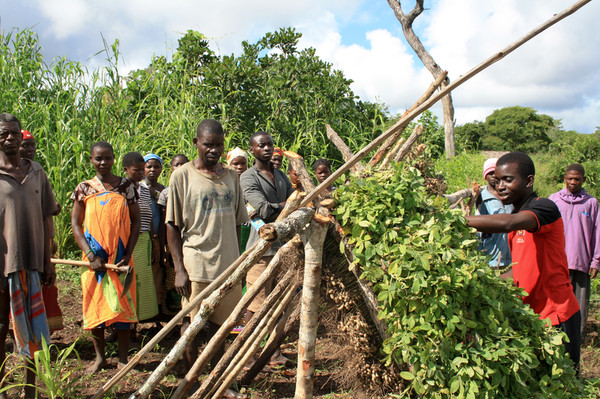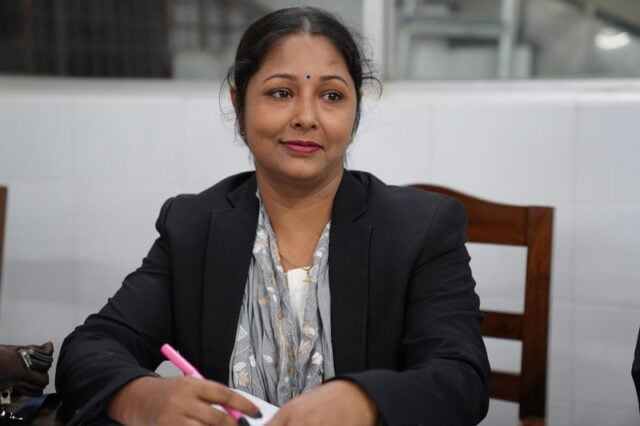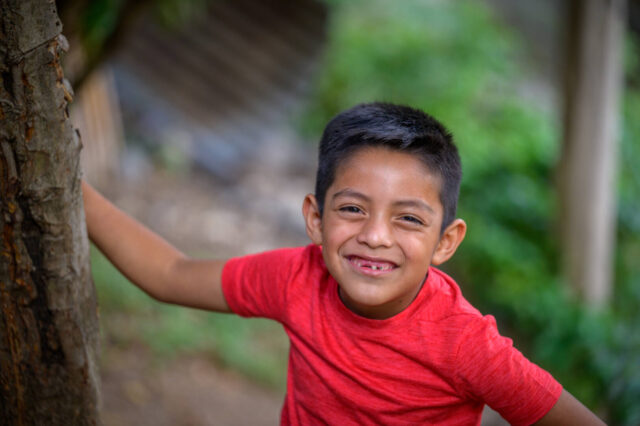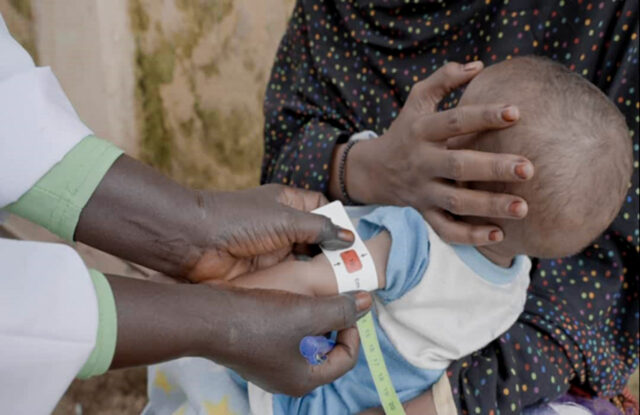About 20 men, women, and children gather around José Mulenço (above, red shirt), who is demonstrating the proper way to dry peanuts, a major crop in northern Mozambique.
“Put the pods fully facing up, away from direct contact with the soil surface and existing moisture,” says José, 23, as he lines the crops in the peanut dryer. “This will avoid decay, loss of pods, and excess moisture.”
José’s guidance is highly valued in his community of Mulharia, where the population depends heavily on farming. José himself might have been a subsistence farmer like his parents, but thanks to World Vision child sponsorship, he has a job teaching agricultural best practices and livestock care.
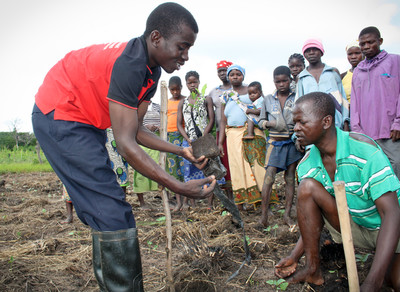
Growing up in Muecate, a semi-arid village in northern Mozambique, many parents couldn’t provide even the basics for their children.
“Sometimes we had one or two meals a day,” José says of his parents and two brothers. “We have grown up eating cassava porridge and cassava leaves.”
With barely enough food to survive, high rates of malnutrition and malaria devastated children younger than 5. The community had no health clinic or easy access to clean water. Families scraped by, leaving little money for school fees or supplies.
“I remember once I missed lessons for almost a week because I did not have exercise books,” says José.
World Vision came to Muecate in 2001 to help the community overcome these obstacles — and to make life better for children like José, who was one of the first sponsored children.
Young man’s sponsor ‘like a father’ to him
Always first in his class, José completed fifth grade — but to continue his education, he would have to study at a vocational school far from home. Paying additional school fees was unthinkable for his family. World Vision was there to help.
“It was like the end of a nightmare,” José says. “World Vision helped my parents to pay my school [fees], school boarding, and whatever I needed during my education.”
In addition to school assistance, José also treasured the letters of encouragement from his sponsor, who was “like a father” to him.
“He used to ask about improvements at school, my family, and my dreams. I felt that he really cared about me,” says José. “I am what I am today because of him. Without his support, probably I would be a farmer just like my parents, my grandparents,” he explains. “My dream was to have him seeing me receiving my graduation diploma. I wanted to show him the difference his money made in my life.”
“My dream was to have [my sponsor] seeing me receiving my diploma. I wanted to show him the difference his money made in my life.”
José, who helped his brothers build houses, thought from an early age that he would become a civil engineer. But when he met Mário Sampaio, a World Vision agronomist, everything changed.
“Seeing Mário working with the farmers in the communities had a profound impact on me. From that moment, I knew that I wanted to do something like that. And that was the right choice because most inhabitants of our village are farmers. I can help my parents and the communities,” José says.
Hundreds have been helped
Now he is doing both. José and his wife, Rosa Alberto, live in Mulharia with their daughter in a house José built himself. He pays school fees for his younger brother, extending the same support that his sponsor gave him.
In his job as a farming technician, José assists about 500 local farmers. Inspired by what he’s achieved, he plans to return to school.
“I want to be an agricultural engineer,” he says.
For now, he’ll make sure local farmers are properly drying and storing their crops — one significant step in the many strides the Mulharia community has taken since 2001.
“If we look back, we have improved a lot,” José says. “We have potable water, school infrastructures, teachers being trained, farmers improving their crops, and even education is more valued now, thanks to World Vision.”
